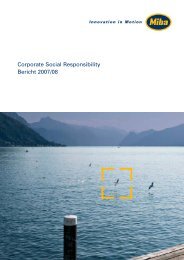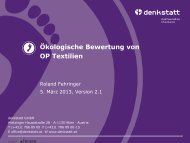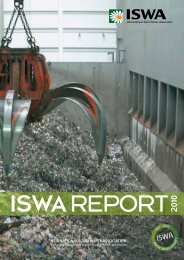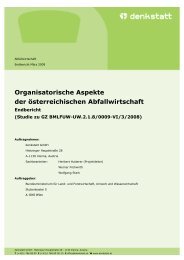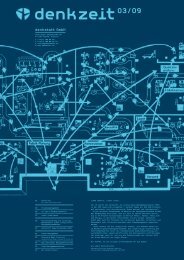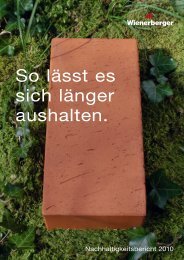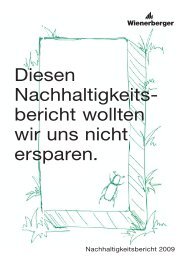INTERNATIONAL SOLID WASTE ASSOCIATION - Denkstatt
INTERNATIONAL SOLID WASTE ASSOCIATION - Denkstatt
INTERNATIONAL SOLID WASTE ASSOCIATION - Denkstatt
Create successful ePaper yourself
Turn your PDF publications into a flip-book with our unique Google optimized e-Paper software.
3.6.6. ISWA/UNEP Balkan Flowers Project<br />
Another good example for intensified cooperation with<br />
other International Organisations whose goals and<br />
activities are related to ISWA’s is the so called “Balkan<br />
Flowers Project”:<br />
ISWA is currently in the early stages of a project in<br />
cooperation with the UNEP Regional Office for Europe,<br />
to develop an overview study of PET –plastic waste<br />
recycling in the South East Europe sub-region with a<br />
focus on Bosnia and Herzegovina, Croatia and Serbia.<br />
The project also aims to explore future policy development<br />
and possible cooperation and exchange of knowledge<br />
and information through sub-regional collaboration<br />
in these three countries.<br />
3.6.7. ISSOWAMA Consortium Project<br />
In 2010 and 2011, as a consortium partner ISWA also<br />
cooperated with other international non-profit<br />
organisations and some universities and academic<br />
institutes on a project called ISSOWAMA – Integrated<br />
Sustainable Solid Waste Management in Asia Southeast.<br />
The Balkan region has a remarkably high waste generation<br />
of PET bottles compared to many other parts of Europe;<br />
which are found floating in rivers, hanging in trees and<br />
piling up in otherwise picturesque locations – sometimes<br />
looking like bizarre flowers, which explains the project<br />
title.<br />
Some key challenges need to be overcome to promote<br />
the recycling of waste in these regions, such as an inadequate<br />
waste management system, low public<br />
awareness and an undeveloped recycling sector. Croatia<br />
is leading the way forward in this region of the Balkans,<br />
with the recent implementation of promising tools that<br />
are promoting the use of refillable bottles and collection<br />
for one way packaging.<br />
Asia is one of the world’s most densely populated<br />
regions, which results in a tremendous output of solid<br />
waste, a majority of which is poorly managed or not<br />
managed at all. Rapid urbanisation in the region is<br />
creating an increasing strain on overburdened infrastructure,<br />
as well as higher demand on limited public<br />
services.<br />
ISSOWAMA was a first step to thoroughly examining<br />
Solid Waste Management issues of eight numerously<br />
populated Asian countries: Bangladesh, India, Cambodia,<br />
Thailand, China, Indonesia and the Philippines. The objective<br />
of this project has been to develop a performance<br />
assessment system for integrated management scenarios,<br />
with a central focus on the integration of sustainability<br />
aspects.<br />
Throughout this project the consortium partners have<br />
investigated and gained expertise in economic and social<br />
situations in the target region, integration of low cost<br />
community managed technologies, and institutional<br />
and socio economic constraints.<br />
As a result the consortium completed local projects in<br />
South Asia, the greater Mekong Sub-region, and South<br />
East Asia which represents nearly half of the world’s<br />
population. A special issue of Waste Management<br />
World is planned to showcase the ISSOWAMA project.<br />
27



